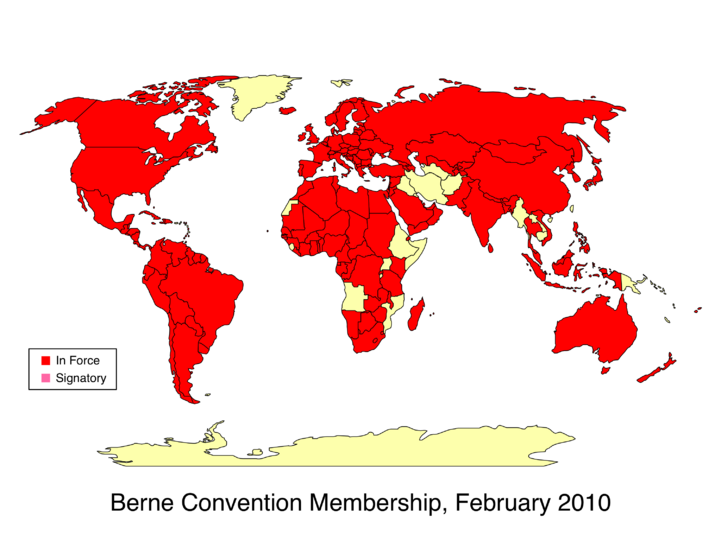| << Chapter < Page | Chapter >> Page > |
In many countries -- especially those that follow the civil-law tradition -- treaties are regarded as "self-executing." In other words, once they are ratified, private parties can rely on them and, if necessary, bring lawsuits against other private parties for violations of the treaties' provisions. However, In other countries -- especially those influenced by the British or Scandinavian constitutional traditions -- treaties lack this self-executing authority. Instead, the national legislatures must adopt statutes implementing them, after which private parties rely on the terms of the implementing legislation, rather than on the terms of the treaties themselves.
None of the six treaties pertaining to copyright law contains a comprehensive set of rules or standards for a copyright system. Rather, each one requires member countries to deal with particular issues in particular ways, but leaves to the member countries considerable discretion in implementing its requirements.
Click here for more on the stages of an international agreement .
Set forth below are brief descriptions of the six major treaties, with special attention to their impacts on developing countries.
In 1886 ten European states signed the Berne Convention for the Protection of Literary and Artistic Works (referred to hereafter as the "Berne Convention") in order to reduce confusion about international copyright law. Since then, a total of 164 countries have joined the Berne Convention. However, there have been several revisions of the Berne Convention, and not all countries have ratified the most recent version. Any nation is permitted to join. You can check to see if your country is a member of the Berne Convention by consulting this link . Below is a map showing which countries are currently members.

The Berne Convention established three fundamental principles. The first and most famous is the principle of “national treatment,” which requires member countries to give the residents of other member countries the same rights under the copyright laws that they give to their own residents. So, for example, a novel written in Bolivia by a Bolivian citizen enjoys the same protection in Ghana as a novel written in Ghana by an Ghanian citizen.
The second is the principle of “independence” of protection. It provides that each member country must give foreign works the same protections they give domestic works, even when the foreign works would not be shielded under the copyright laws of the countries where they originated. For example, even if a novel written in Bolivia by a Bolivian national were not protected under Bolivian law, it would still be protected in Ghana if it fulfilled the requirements for protection under Ghanian law.
The third is the principle of “automatic protection.” This principle forbids member countries from requiring persons from other Berne Convention member countries with legal formalities as a prerequisite for copyright protection. (They may impose such requirements on their own citizens, but usually do not.) The effect of this principle is that the Bolivian author of a novel doesn’t have to register or declare her novel in Ghana, India, Indonesia or any other member state of the Berne Convention; her novel will be automatically protected in all of these countries from the moment it is written.

Notification Switch
Would you like to follow the 'Copyright for librarians' conversation and receive update notifications?